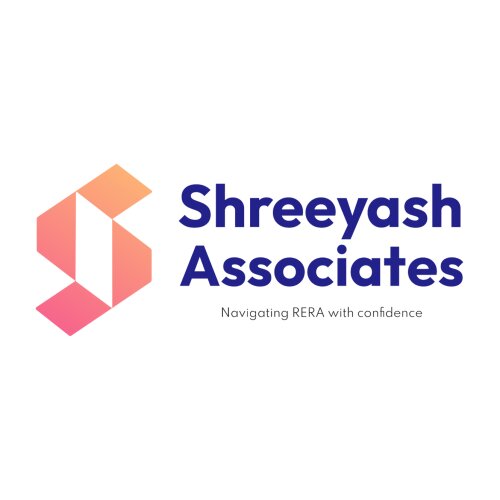Best Natural Resources Lawyers in Pune
Share your needs with us, get contacted by law firms.
Free. Takes 2 min.
List of the best lawyers in Pune, India
About Natural Resources Law in Pune, India
Pune, an important city in the western Indian state of Maharashtra, is known for its rich cultural heritage and booming industries. The region is characterized by various natural resources, including water bodies, forests, and mineral deposits. Given its geographical and industrial significance, Pune plays a crucial role in managing and utilizing these natural resources efficiently and sustainably. Natural Resources Law in Pune encompasses legal frameworks related to the conservation, use, and protection of these resources, ensuring they are used responsibly to benefit both the environment and the population.
Why You May Need a Lawyer
Individuals and businesses might require legal assistance in natural resources for several reasons. Common situations include:
- Land Disputes: Conflicts over land ownership, usage rights, and encroachments, especially in areas rich in minerals or forests.
- Environmental Compliance: Ensuring adherence to environmental laws and regulations, particularly for industries whose activities impact natural resources.
- Water Rights: Legal issues surrounding the usage and distribution of water resources, impacting agricultural operations or urban development.
- Mining and Excavation: Legal guidance on obtaining licenses, land acquisition, and compliance with regulations for mining activities.
- Conservation Efforts: Issues involving wildlife protection, deforestation, and sustainable management practices.
Local Laws Overview
The legal landscape regarding natural resources in Pune is guided by both state and national laws. Key aspects include:
- Forestry Laws: Regulations under the Indian Forest Act, 1927, and the Forest Conservation Act, 1980, aimed at preserving forested areas.
- Environmental Protection: The Environment Protection Act, 1986 sets guidelines to regulate activities that potentially harm ecosystems.
- Water Management: Governing usage and rights through the Maharashtra Groundwater (Development and Management) Act, 2009.
- Wildlife Protection: Enforced under the Wildlife Protection Act, 1972, addressing issues of habitat conservation and anti-poaching measures.
- Mining Regulations: Compliance with the Mine and Minerals (Regulation and Development) Act, 1957, and subsequent amendments.
Frequently Asked Questions
What is Natural Resources Law?
It refers to the body of law that governs the rights and responsibilities of individuals and companies regarding the management and conservation of natural resources.
Do I need a permit for using groundwater on my property?
Yes, in most cases you need to comply with the regulations set forth by the Maharashtra Groundwater (Development and Management) Act, 2009.
How can I ensure compliance with environmental regulations for my business?
Consulting an environmental lawyer can help ensure that your business operations meet all necessary legal standards and minimize ecological impacts.
What should I do if I encounter an encroachment issue on forest land?
It's important to consult a legal expert who specializes in forestry law to address the issue appropriately under the Indian Forest Act and other relevant regulations.
Is legal advice necessary for wildlife conservation efforts?
Yes, to navigate the complexities of wildlife protection laws and to ensure your efforts align with legal requirements like those in the Wildlife Protection Act.
Can mining activities be conducted on agricultural land?
This typically requires specific permissions and compliance with relevant laws and it's advisable to seek legal counsel for guidance.
What legal measures are in place for pollution control in industrial areas?
The Environment Protection Act, 1986 provides a framework for assessing and controlling pollution levels in industrial regions.
Are there any local NGOs in Pune working on natural resources conservation?
Yes, various local NGOs focus on sustainability and conservation, often collaborating with governmental bodies to protect natural resources.
How do I address illegal mining near my area?
Report the activity to local authorities and seek legal advice to ensure all proper measures are taken according to the Mine and Minerals (Regulation and Development) Act.
What can be done about improper waste management affecting natural resources?
Report it to municipal authorities and consider legal action if necessary, following the guidelines of the Environmental Protection Act, 1986.
Additional Resources
For further assistance and information, you may consider reaching out to:
- Maharashtra State Pollution Control Board (MPCB): Offers guidance and enforcement of pollution control norms.
- Forest Department, Maharashtra: Handles issues related to forestry laws and conservation policies.
- Pune Municipal Corporation: Manages urban development and environmental matters within the city limits.
- Local NGOs: Organizations such as Centre for Environment Education (CEE) provide valuable insights into sustainable practices.
Next Steps
If you require legal assistance pertaining to natural resources in Pune, the following steps can guide you:
- Identify your specific legal needs related to natural resources.
- Consult with legal professionals who specialize in natural resources law in Pune to gain clarity and direction.
- Gather all necessary documentation and details relevant to your case before meeting with your lawyer.
- Explore local and online resources for more comprehensive information and potential legal aid options.
Lawzana helps you find the best lawyers and law firms in Pune through a curated and pre-screened list of qualified legal professionals. Our platform offers rankings and detailed profiles of attorneys and law firms, allowing you to compare based on practice areas, including Natural Resources, experience, and client feedback.
Each profile includes a description of the firm's areas of practice, client reviews, team members and partners, year of establishment, spoken languages, office locations, contact information, social media presence, and any published articles or resources. Most firms on our platform speak English and are experienced in both local and international legal matters.
Get a quote from top-rated law firms in Pune, India — quickly, securely, and without unnecessary hassle.
Disclaimer:
The information provided on this page is for general informational purposes only and does not constitute legal advice. While we strive to ensure the accuracy and relevance of the content, legal information may change over time, and interpretations of the law can vary. You should always consult with a qualified legal professional for advice specific to your situation.
We disclaim all liability for actions taken or not taken based on the content of this page. If you believe any information is incorrect or outdated, please contact us, and we will review and update it where appropriate.











